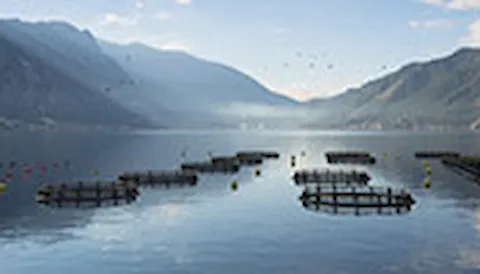Marine Stewardship Council (MSC) Certification
The Marine Stewardship Council (MSC) fisheries standard ensures that a fishery is well managed and responsibly harvested to sustain the set targets and the surrounding marine environment.
Population growth, overexploitation of natural resources and environmental degradation have resulted in declining global biodiversity. Species are diminishing in numbers and becoming extinct, and ecosystems are depleting and suffering damage. Minimizing the environmental impacts on our ecosystems is essential. Certification according to the MSC Fisheries Standard confirms sustainable practices, using a credible, independent, third-party assessment process.
What is the MSC Fisheries Standard
The MSC Fisheries Standard is applicable to all wild capture fisheries. The standard is based on three core principles:
- Sustainability of exploited fish stocks
- Maintenance of the ecosystem on which the fishery depends
- Effective and responsible management
To ensure that only seafood originating from MSC-certified sustainable fisheries carry the MSC eco-label, all companies in the supply chain must be certified according to the MSC Chain of Custody Standard.
Benefits of becoming certified
Certification to the MSC Fisheries Standard enables your organization to:
- Fulfill market requirement of third-party verification of sustainable fishing
- Differentiate products in an increasingly competitive marketplace
- Be a preferred supplier
- Adapt to the environmentally conscious consumer
- Support the positioning of your product with the eco-label
- Demonstrate good resource stewardship to the community and stakeholders
- Contribute to increased pressure for improvement on non-sustainable fisheries
It provides assurance to consumers and retailers that the seafood products come from a well-managed and sustainable source.
Getting started
The most important element in the certification process is to transparently identify and address issues about target stock(s), the impact of fishing on the marine environment, and the effectiveness of the fishery’s management system.
Specific circumstances out of your company’s control may prevent you from becoming certified, such as unsustainable governmental policies. Thus, the pre-assessment is a fundamental step in the certification process in order to identify possible problems at a very early stage.
The assessment includes measuring the fishery against the principles of the standard, considering the unique circumstances of the fishery. The certification process includes involvement of fishery experts, consultations with stakeholders and submission of reports at specific stages.
DNV is an independent third-party certification body accredited for the MSC Fisheries standard.
In-transition to MSC
MSC also offers the In-transition to MSC (ITM) program for those just starting out. This 5-year program supports fisheries of all sizes and locations committed to achieving certification but are not yet ready to enter the Fisheries Standard.
This program supports you in making measurable, independently verified progress towards MSC certification. It applies to fisheries wishing to enter certification as well as those already certified but with a suspended certificate. The program has a number of improvement tools to help fisheries identify where changes are needed, develop an improvement action plan, and monitor progress.
Regular independent verification of improvements being made is required and must be carried out by an accredited certification body. You can then demonstrate progress toward stakeholders and apply to the MSC Transition Assistance Fund, which cover the costs of implementing improvements and progress verifications. Fisheries in the ITM program cannot use the MSC ecolabel.






